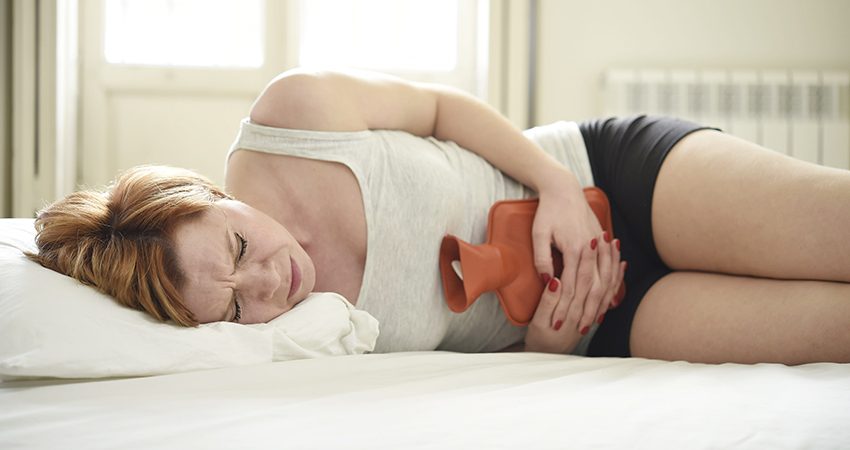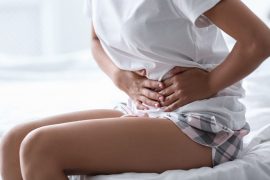By: Dr. Josh Axe
Fibroids are extremely common. In fact, about 75 percent of women experience them at some point in their lives. Ranging in size from a few millimeters to the size of watermelons, fibroids are responsible for more than 200,000 hysterectomies each year.
What are fibroids? They’re non-cancerous tumors found within the uterine walls, often resulting in a change in the size or shape of the uterus as well as several unpleasant symptoms. However, they can also be symptomless. So whether you know you have fibroids or not, it’s a great idea for any woman to do things to naturally prevent these common growths in the uterus.
Studies have shown that avoiding high blood pressure lowers the risk of developing them. According to research from the Harvard Medical School and Harvard School of Public Health, there’s a strong and independent association between blood pressure and risk for fibroids in premenopausal women.
Some risk factors for fibroids are out of your control, but there are many you can manage. These include things like eating higher-quality beef, working more leafy green vegetables into your diet and drinking less alcohol. There are also a lot of things you can do to balance your hormones naturally, which is a key part of natural fibroid treatment. Some tips may include:

- Avoid Foods that Make It Worse
These foods include: High-Fat, Processed Meats, Conventional Dairy, Refined Sugar, Refined Carbohydrates, Alcohol, Caffeine.
- Eat Foods that Heal Fibroids
The following foods should be included in your diet to keep your fibroids at bay: Organic Foods, Green Leafy Vegetables, Cruciferous Vegetables, Beta-carotene Rich, High-Iron Foods, Flaxseeds, and Whole Grains.
- Try Supplements that Aid in Fibroid Reduction
Be sure to check with your doctor before introducing new supplements into the mix. These supplements have a strong reputation for creating better hormone balance: Vitex (4,00mg 2 times daily), Fish Oil (1,000 milligrams daily) or Flaxseed Oil (1 tablespoon daily), B-complex (50 milligrams daily, Progesterone Cream (1/4 teaspoon, days 6–26 of cycle). Milk Thistle (150 milligrams 2 times daily).
- Turn to Essential Oils
Thyme, clary sage and frankincense are the best essential oils for natural fibroid treatment. They all have the ability to help balance hormones naturally. Clary sage oil has also been shown by researchers to significantly lower cortisol levels as well as have an anti-depressant effect on mood. This is just one of several studies that show clary sage oil’s ability to benefit a woman’s hormones.
Rub two drops of these essential oils over your lower abdomen two times daily; put two drops of frankincense oil on the roof of your mouth two times daily.
- Sip on Herbal Teas
Herbal teas help soothe the symptoms of fibroids by decreasing inflammation and rebalancing certain hormones. Teas made with chasteberry, milk thistle, yellow dock, dandelion root, nettle and red raspberry all have systemic benefits for the uterus and reproductive system.
- Try Castor Oil Packs
By applying a castor oil pack to your abdomen, you increase circulation in the lymphatic and circulatory systems and also increase lymphocytes — white blood cells that eliminate disease-causing toxins from the body. Many holistic practitioners believe a buildup of toxins plays an important role in fibroid development.
Castor oil also contains anti-inflammatory ricinoleic acid. While there hasn’t been any scientific research to date that directly studies the impact of castor oil packs on uterine fibroids, it makes sense why castor oil packs could be helpful. A 2011 study did show that castor oil packs can help detoxification for by decreasing symptoms of constipation. (7)
- Avoid Exposure to Environmental Toxins
Stay clear of the following to improve your hormonal health as well as your general health: pesticides, herbicides, synthetic fertilizers, bleach, food preservatives, harmful cleaners (even certain eco-cleaners) and food dyes. You’ll also want to opt for natural, unbleached feminine care products as well as organic body care products and makeup.
- Exercise
Getting regular exercise can actually help to prevent fibroids before they start! According to one study, the more a woman exercises, the less likely she is to get uterine fibroids.
Dr. Josh Axe, DNM, DC, CNS is a certified doctor of natural medicine, doctor of chiropractic and clinical nutritionist with a passion to help people get healthy by using food as medicine. In 2008 he started Exodus Health Center, which grew to become one of the largest functional medicine clinics in the world.




